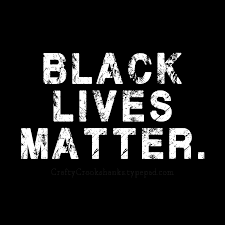I often wonder where Korach went wrong. In last week’s Torah portion, Parashat Korach, Korach and his followers stand up to the leaders of the Israelites. Although he challenges Moses’ and Aaron’s authority with an ultimately unsuccessful rebellion, the essence of his message is one that we cannot forget. He says:
You are too much! For all of the community is holy and God is in their midst. (Num. 16:3)
Of course this is true! Korach is challenging Moses and Aaron, lest they think that they are any better than anyone else simply because they are leaders. The entire community is God’s people. All of humanity is holy.
I often wonder where we as a society went wrong. Day after day, we wake up to the latest heartbreaking and horrific news stories. Last Wednesday, we woke up to news of the death of Alton Sterling in Baton Rouge, Louisiana, at the hands of two police officers, killed for selling CD’s in the Triple S Food Mart parking lot. His death was filmed on a cell phone. On Thursday, I woke up to news of the death of Philando Castile, who was shot and killed by a Falcon Heights, Minnesota police officer at a traffic stop; the shooting was streamed live on Facebook by Philando’s girlfriend, Diamond Reynolds, who was in the passenger sit. And we woke up on Friday morning, to hear news of the manhunt and shootout that took place in Dallas, Texas the night before in which five officers were murdered and seven wounded. At a peaceful #BlackLivesMatter action and protest, a man started shooting at officers and at the crowd, putting the whole downtown area in a panic.
Don’t we believe the words of Korach’s challenge? Don’t we believe that the whole community is holy? If so, then it is our responsibility to stand up and ensure that all are considered holy. We need to preach that. We need to act on that. We need to stand up for the holiness of all.
 Some suggest that the #BlackLivesMatter movement is somehow anti-police. But that is unfair and inaccurate. It is anti-police brutality. We all should be against police brutality. Some suggest that to support police officers somehow means that one condones the systemic racism and brutality that we have witnessed and seen, that all too often leads to the death of black men and women at the hands of police in this country. That too is unfair and inaccurate. One can – and should – support a movement which stands to protect the holiness of the lives of black men and women and still support our police in their efforts to keep us safe. Gene Testimony Hall, of the #BlackLivesMatter movement wrote that:
Some suggest that the #BlackLivesMatter movement is somehow anti-police. But that is unfair and inaccurate. It is anti-police brutality. We all should be against police brutality. Some suggest that to support police officers somehow means that one condones the systemic racism and brutality that we have witnessed and seen, that all too often leads to the death of black men and women at the hands of police in this country. That too is unfair and inaccurate. One can – and should – support a movement which stands to protect the holiness of the lives of black men and women and still support our police in their efforts to keep us safe. Gene Testimony Hall, of the #BlackLivesMatter movement wrote that:
Let’s be clear, we said “Black Lives Matter.” We never said “only black lives matter.” In truth, we know that all lives matter. We’ve supported your lives throughout history. Now we need your help with Black Lives Matter for black lives are in danger.
Rabbinic tradition teaches that Korach ultimately failed because he didn’t really believe in the message that he was preaching. He didn’t believe that the whole community was holy. He didn’t believe that God resided within all of us, that we were all created in God’s image. Rather, he only cared about power. He was jealous of the power that Moses and Aaron had and wanted that power for himself. That is why he failed. Because he didn’t care about the true meaning of the message he taught, he was swallowed up by the earth. And it seems that unless we take a stand against systemic racism, then the earth will swallow us all up – we will continue to destroy each other.
Moses sent for Dathan and Abiram, two of Korach’s followers and supporters, but they refused to meet with him. They cried out their concern that they were taken out of slavery, with a promise to be brought to the land flowing with milk and honey, only to die in the wilderness. Their challenge is an important one: what is the point of freedom if it only leads to us killing each other in the wilderness? May we no longer wander in the wilderness. May we work together, to create a metaphoric Promised Land for us all.
I pray that we no longer wake up to the news of another life taken too soon – a life taken because of racism, bigotry, or hate. We are committed to building a better world – a more peaceful and just world. Yet, day after day, we cry ourselves to sleep with news of another soul taken from this world far too soon. The Psalmist teaches:
We may weep through the night, but joy comes in the morning (Ps. 30:5).
May we wake up to a new day, a day full of joy, a day where we take a stand. May we take Korach’s message to heart that all are holy and God resides within each individual. And may we march with our black brothers and sisters for justice, until the essence of Korach’s message is realized.
-Rabbi Jesse M. Olitzky






